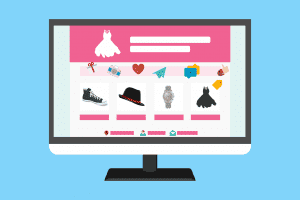Business has changed dramatically over the last decade because of the internet. The internet has drastically changed how we communicate, interact, and trade with the world around us. Nearly every business out there now has a website and a social media page because businesses can no longer rely on TV and print ads alone; they also need online advertising.
Websites give customers the opportunity to directly interact with the product or service that the business is selling, which yields a faster conversion. With this in mind, business owners must invest valuable time and effort in creating and maintaining their website. They can hire a web designer company, or they can learn to build and manage a website for themselves.

(Pixabay / 200degrees)
If you’re looking to give a try at building your own website, here are some popular platforms to make your job easier:
WordPress
WordPress is a very popular web design platform and for good reason. In fact, 35% of all websites run on WordPress, including 62% of sites that are built using a known platform, like those in the list you’re currently reading.
WordPress is as intuitive of a platform as you’ll find. It has a lot of options and plugins that make it simple to get exactly what you want, even if you don’t have the skills for advanced design. With little upfront knowledge, you can create a beautiful website that is functional and easy-to-use.
Many web designers use WordPress when they initially design a site because they prioritize ease-of-use above everything else. After all, once the website is designed, the torch will be passed to you, the business owner. This website builder is best for first-timers because of its user-friendly interface.
Shopify
This website builder is catered toward online stores and e-commerce, and it has features and tools that can significantly help business owners. For example, it has access to full inventory management, analytics, and a litany of marketing options and solutions. You can also sell an unlimited number of products because it can scale pretty well. It is easy to use and has a lot of templates that you can choose from. Knowing how to code isn’t a requirement because Shopify will take care of all of the technical stuff for you.
BigCommerce
This is another website builder geared toward online stores. It has many features that are similar to Shopify, but it also sports applications unique to BigCommerce. It comes with plenty of design templates to start with and has an integrated payment system. This platform has access to a marketing suite, which enables you to give coupons and promotions to your customer base. Best of all, you can easily integrate your site with an email service provider using BigCommerce. As a bonus, it has social media and sharing tools to make it easier to communicate with your customer base across multiple channels.
Websites are a must for any business nowadays. Thankfully, new tools make website development and maintenance easier than ever. This leaves you extra time to focus on other important things like improving your customer ratings and streamlining your business procedures.